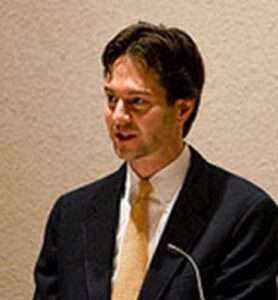The Volokh Conspiracy
Mostly law professors | Sometimes contrarian | Often libertarian | Always independent
Jeffrey Friedman, RIP
Friedman was a notable - and underrated - political theorist.

The distinguished political theorist Jeffrey Friedman passed away suddenly on December 2, at the far-too-early age of 63. Jeff was best-known for his work on democracy, political knowledge, and libertarianism, and for his role as the editor of Critical Review, the highly successful interdisciplinary academic journal he founded in 1987, and edited from then until his death. Jeff also taught at several universities around the country, including Barnard, Boston University, Dartmouth, the University of Texas, and Harvard (where, at the time of his passing, he was a visiting scholar at the Committee on Social Studies).
The best introduction to Jeff's multifaceted and complex work is his underrated 2019 book Power Without Knowledge: A Critique of Technocracy (Oxford University Press). He also authored or edited important books on the 2008 financial crisis and rational choice theory (of which he was a forceful critic).
While Jeff was generally considered a libertarian, or at least libertarian-adjacent, he largely rejected conventional libertarian political thought, and ultimately even the "libertarian" label. He was equally skeptical of standard approaches to democratic theory. Like libertarian (and some non-libertarian) critics of modern democratic government, Jeff argued that widespread voter ignorance was a serious danger. But, unlike them, he claimed that most such ignorance was inadvertent "radical" ignorance, rather than individually rational behavior (as believed by most economists and other social scientists). He also argued that similar radical ignorance afflicted expert decision-making on public policy, and conventional social scientific analysis. He thus concluded that markets and other types of exit rights generally produce better results than government, not because of superior incentives, but because they offer better opportunities for trial-and-error learning.
The above is a highly oversimplified summary that doesn't really do justice to Jeff's incredibly sophisticated and nuanced writings. Few other scholars of our time could equal Jeff's depth and breadth of knowledge of a vast range of issues cutting across disciplinary boundaries. If you really want to understand his work, there is no substitute for reading it!
While Jeff and I wrote on some of the same issues, and often reached similar relatively libertarian conclusions, we differed on many points. Unlike Jeff, I believe that most political ignorance is in fact rational, and I think social science often generates more powerful insights than he gave it credit for. For a summary of our differences about democracy and public ignorance, see this 2013 symposium about my book Democracy and Political Ignorance, a work that surely benefited from Jeff's influence, even though it makes many points he strongly disagreed with.
Despite our differences - some of them on issues where he had very strong views - Jeff was an invaluable friend and mentor to me, over many years. The same was true of numerous other younger scholars. Way back in 1998, when I was a young graduate student, I published my very first article on political ignorance in Critical Review - at Jeff's suggestion. It remains one of my four or five most cited works to this day - a status it would not have achieved without Jeff's valuable suggestions and his criticisms of my many rookie mistakes.
In recent years, we had relatively little contact, as my time was taken up by other personal and professional commitments. That neglect is at least in part my fault, and certainly is my loss. It did not occur to me that so energetic a person as Jeff might leave us so soon.
In what is now a lengthy academic career spanning multiple universities, nations, and continents, I have rarely, if ever, met anyone who epitomized what it means to be a gentleman and a scholar more than Jeffrey Friedman. His passing is a terrible loss. I extend my condolences to his family, friends, and colleagues.
UPDATE: I have made minor additions to this post, such as noting that Jeff ultimately came to reject the "libertarian" label.


Show Comments (5)